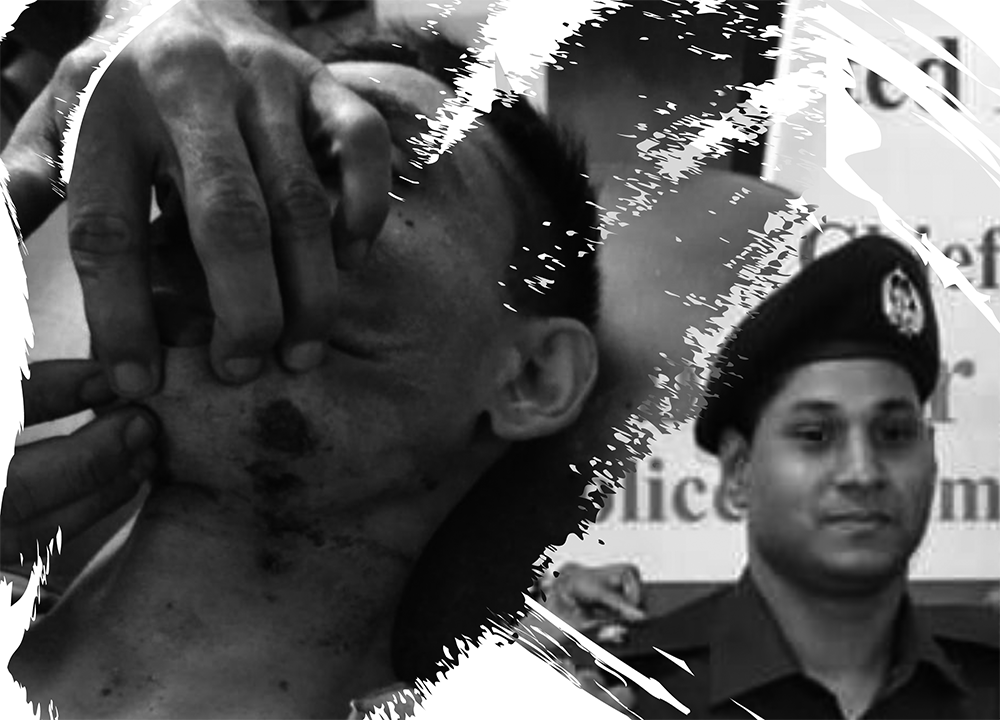DGFI: Retired Bangladesh army major shot dead in police “killing competition”
A leaked confidential intelligence agency report claims that the retired army major came out of his car with hands above his head.

A confidential field report prepared by the Directorate General of Forces Intelligence (DGFI) into the killing on July 31st of the retired army major, Sinha Mohammad Rashed Khan, in Cox’s Bazar paints a picture of trigger-happy local police accustomed to killing drug and crime suspects on the spot. Leaked to Netra News, the report suggests the police’s tendency to shoot off suspects may have played a role when they killed the former army officer.
It also directly contradicts the statement offered by Cox’s Bazar police, which claimed Major Sinha was killed when he brought out a pistol from his pocket and was about to shoot at the police after his car was stopped at the Baharchhara check post. The police claim that they were on high alert during Eid and had received information that two to three people, wearing Burkha-type clothing had got into a car.
Citing eyewitnesses, the report by the military intelligence agency says Major Sinha never pulled out his gun. Instead, he calmly got out of his car with his hands above his head, and yet he was shot dead instantly. It also accuses the police convoy of intentionally wasting 45 minutes before taking him to the hospital.
In its “remarks” section, the report speaks of “a killing competition” among members of the Teknaf police in the name of eliminating drug trade. “[This competition] has already created many unwanted incidents and is expected to create many more in the future,” it reads.
Teknaf, the southernmost Upazila of Bangladesh, is a major drug trafficking route. However, in recent years, local law enforcement agencies have been accused of employing excessive force and killing drug suspects extrajudicially.
Although the DGFI appears to be critical of the police in this report, the feared intelligence agency itself is not immune to such allegations. For example, its officers were implicated in the much-talked-about murder of Ekramul Haque, a Teknaf municipality councillor.
In May 2018, seven months before the controversial national elections, Bangladesh’s Prime Minister Sheikh Hasina declared a war on drugs. In the two months since, major anti-drug operations saw more than 200 suspects killed and tens of thousands arrested, according to Odhikar, a rights group. Multiple reports by rights groups and the media found that those killed and arrested in these operations included many innocent people and opposition activists.
While local and international human rights organisations consistently urged the Bangladesh government to stop killing drug suspects, the government has always denied that there is a shoot to kill policy. Instead, it has maintained that in every such incident, the law enforcement agency was forced to act in their own defence, when “gunfights” erupted between the police and the detained suspect’s accomplices. However, the damning DGFI report appears to confirm what rights groups and the media have reported all along.
The report presumes there was “a genuine possibility” that the police would also kill Sifat, the companion of Major Sinha at the car who was detained after the incident, in a framed “drug or arms recovery operation.”
The DGFI recommended that the police administration should be ordered to stop “frequent killings” in the name of anti-drug operations.
According to Bangladesh Peace Observatory in Dhaka University, as many as 218 incidents of “gunfights” and “crossfires” occurred in Cox’s Bazar from 2018, with Teknaf Upazila alone accounting for 144 of those incidents resulting in 204 deaths.●
🔗 The Wire.in: In Recording, Chilling Proof That Hasina’s War on Drugs Involves Extra-Judicial Killing
🔗 Amnesty International: Bangladesh: Alleged extrajudicial killings in the guise of a ‘war on drugs’